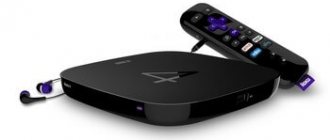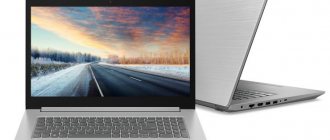Video cards from the American manufacturer AMD have won the trust of customers with their high quality, performance and affordable prices.
AMD produces a fairly large line of graphics controllers. Therefore, in order to select the most suitable graphics component for a particular user, we analyzed the statistics of purchases of AMD video cards.
To compile a rating of 15 video cards in price/quality ratio, data from marketplaces for 2020–2021, official test results, functionality, and reviews from experts and buyers were used.
Rating of the TOP 15 best AMD video cards of 2021
| Place | Name | Price |
| TOP 4 best AMD video cards by price/quality for 2021 | ||
| 1 | ASRock Radeon RX 5500 XT Challenger D 8G OC (RX5500XT CLD 8GO) | Find out the price |
| 2 | ASUS Dual Radeon RX 5500 XT EVO OC 8GB (DUAL-RX5500XT-O8G-EVO) | Find out the price |
| 3 | ASUS Phoenix Radeon 550 2GB (PH-550-2G) | Find out the price |
| 4 | MSI Radeon RX 5500 XT MECH 4G OC | Find out the price |
| TOP 4 best AMD video cards by performance | ||
| 1 | MSI Radeon RX 6900 XT GAMING X TRIO 16G | Find out the price |
| 2 | ASUS TUF GAMING Radeon RX 6900 XT 16GB (TUF-RX6900XT-O16G-GAMING) | Find out the price |
| 3 | Sapphire NITRO + Radeon RX 6900 XT 16GBG) | Find out the price |
| 4 | ASRock Radeon RX 6900 XT Phantom Gaming D OC 16GB (RX6900XT PGD 16GO) | Find out the price |
| TOP 4 best AMD video cards for Full HD gaming | ||
| 1 | PowerColor Radeon RX 580 Red Dragon 8GB (AXRX 580 8GBD5 DHDV2/OC) | Find out the price |
| 2 | GIGABYTE Radeon RX 5500 XT 1647Mhz PCI-E 4.0 8192Mb 14000Mhz 128 bit HDMI 3xDisplayPort HDCP OC | Find out the price |
| 3 | Sapphire Nitro + Radeon RX 5500 XT SE 8GBG) | Find out the price |
| 4 | PowerColor Red Dragon Radeon RX 570 8GB (AXRX 570 8GBD5-DHDV3/OC) | Find out the price |
| TOP 3 best budget AMD video cards | ||
| 1 | PowerColor Red Dragon Radeon RX 550 2GB (AXRX 550 2GBD5-DH) | Find out the price |
| 2 | XFX Radeon RX 550 4GB Double Dissipation (RX-550P4PFG5) | Find out the price |
| 3 | GIGABYTE Radeon RX 550 D5 2G (rev. 1.0/1.1) (GV-RX550D5-2GD) | Find out the price |
Which AMD graphics cards are relevant in 2021?
At the moment, current AMD video cards are considered:
- Sapphire Pulse Radeon RX 550 . Suitable for AAA games with high texture settings. Supports modern standards DirectX 12, OpenGL 4.5. Has DisplayPort and HDMI along with DVI-D, 4 GB of video memory. Cons: poor cooling with one fan.
- Sapphire FirePro S9150 . The best video card that other brands cannot compete with. The main advantage is the speed of calculations with single and double precision: 5.07 and 2.53 TFLOPS, respectively.
- ASRock Radeon VII . This is a real monster. One of the company's latest developments. Advantages: Vega 20 graphics processor, 16 GB of HVM2 video memory, three powerful cooling fans. There are no cons.
- Sapphire Nitro+ Radeon RX Vega . The coldest representative of the Vega family: does not heat above 65 degrees. Handles games in 2K resolution. But one of the disadvantages is its excessive gluttony in terms of energy consumption: it runs on a power supply with a power of at least 750 W.
- ASUS Radeon RX Vega . Top solution with three cooling fans. There are 8 GB of video memory HVM2. Runs games in 4K resolution. One of the disadvantages is the size of the device.
How to choose the best AMD graphics card?
When choosing a video card based on an AMD GPU, the buyer should pay attention to five device parameters:
- Compatible with system unit, motherboard, processor . To install a video card in a specific power supply, you should first study the dimensions of both devices. Since not all components may fit each other in size. You should also take into account the characteristics of the existing motherboard and processor, since not each of them will be able to support the operation of a modern video card. will not cope with modern powerful video cards.
- Amount and type of graphics memory . A large amount of video memory is important if the user uses a monitor with 4K or 8K resolution, or uses several monitors simultaneously. The type of graphics memory plays a big role in the video card, since it determines how quickly the device will process the image and display it on the screen. AMD uses two types of video memory: GDDR5 and GDDR6. Faster data processing is carried out by GDDR6 video memory.
- Stream processors . The more there are, the better the GPU processes the image. This is important for high graphics games and to ensure high frame rates.
- Power supply parameters . Before purchasing a video card, you should make sure that the device will have sufficient power supplies in the system unit.
- Cooling . A powerful video card must have active cooling. In this case, it will work quietly and stably without overheating. The active cooling system will increase the durability of the graphics controller.
All ATI Radeon video cards
Main characteristics
With more GPUs being released every day, buyers who don't follow the graphics card market won't know all the differences between ATI . To make the choice easier when purchasing video cards, a table has been compiled with the main characteristics of graphics processors (GPUs) from ATI .
It is important to note that starting in 2007, ATI and NVIDIA began to indicate real memory clock speeds. In the past, they specified double memory frequencies because DDR , and subsequent technologies ( DDR2, GDDR3 , etc.), allow the memory chip to transfer two units of data per clock cycle. Thus, a video card with a 500 MHz memory chip was marked as 1 GHz memory. To maintain compatibility in the table, we still indicate memory frequencies at twice the real one.
| ATI GPU | Core frequency | Memory frequency | Tire | Data transmission frequency | Pixels per clock | DirectX |
| Radeon 9200 | 250 MHz | 400 MHz | 128-bit | 6.4 Gb/s | 4 | 8.1 |
| Radeon 9200 Pro | 275 MHz | 550 MHz | 128-bit | 8.8 Gb/s | 4 | 8.1 |
| Radeon 9200 SE | 200 MHz | 333 MHz | 64-bit | 2.6 Gb/s | 4 | 8.1 |
| Radeon 9250 | 240 MHz | 400 MHz | 128-bit | 6.4 Gb/s | 4 | 8.1 |
| Radeon 9250 SE | 240 MHz | 400 MHz | 64-bit | 3.2 Gb/s | 4 | 8.1 |
| Radeon 9500 | 275 MHz | 540 MHz | 128-bit | 8.6 Gb/s | 4 | 9.0 |
| Radeon 9550 | 250 MHz | 400 MHz | 128-bit | 6.4 Gb/s | 4 | 9.0 |
| Radeon 9550 SE | 250 MHz | 400 MHz | 64-bit | 3.2 Gb/s | 4 | 9.0 |
| Radeon 9500 Pro | 275 MHz | 540 MHz | 128-bit | 8.6 Gb/s | 8 | 9.0 |
| Radeon 9600 | 325 MHz | 400 MHz | 128-bit | 6.4 Gb/s | 4 | 9.0 |
| Radeon 9600 Pro | 400 MHz | 600 MHz | 128-bit | 9.6 Gb/s | 4 | 9.0 |
| Radeon 9600 SE | 325 MHz | 400 MHz | 64-bit | 3.2 Gb/s | 4 | 9.0 |
| Radeon 9600XT | 500 MHz | 600 MHz | 128-bit | 9.6 Gb/s | 4 | 9.0 |
| Radeon 9700 | 275 MHz | 540 MHz | 256-bit | 17.2 Gb/s | 8 | 9.0 |
| Radeon 9700 Pro | 325 MHz | 620 MHz | 256-bit | 19.8 Gb/s | 8 | 9.0 |
| Radeon 9800 | 325 MHz | 580 MHz | 256-bit | 18.56 Gb/s | 8 | 9.0 |
| Radeon 9800 Pro | 380 MHz | 680 MHz | 256-bit | 21.7 Gb/s | 8 | 9.0 |
| Radeon 9800 SE | 325 MHz | 500 MHz | 128-bit or 256-bit | 8 Gb/s or 16 Gb/s | 4 | 9.0 |
| Radeon 9800XT | 412 MHz | 730 MHz | 256-bit | 23.3 Gb/s | 8 | 9.0 |
| Radeon X300 SE | 325 MHz | 400 MHz | 64-bit | 3.2 Gb/s | 4 | 9.0 |
| Radeon X300 | 325 MHz | 400 MHz | 128-bit | 6.4 Gb/s | 4 | 9.0 |
| Radeon X550 | 400 MHz | 500 MHz | 128-bit or 64-bit | 8 Gb/s or 4 Gb/s | 4 | 9.0 |
| Radeon X600 Pro | 400 MHz | 600 MHz | 128-bit | 9.6 Gb/s | 4 | 9.0 |
| Radeon X600XT | 500 MHz | 730 MHz | 128-bit | 11.68 Gb/s | 4 | 9.0 |
| Radeon X700 | 400 MHz | 600 MHz | 128-bit | 9.6 Gb/s | 8 | 9.0 |
| Radeon X700 Pro | 420 MHz | 864 MHz | 128-bit | 13.8 Gb/s | 8 | 9.0 |
| Radeon X700XT | 475 MHz | 1.05 GHz | 128-bit | 16.8 Gb/s | 8 | 9.0 |
| Radeon X800 SE | * | * | * | * | 8 | 9.0 |
| Radeon X800 | 400 MHz | 700 MHz | 256-bit | 22.4 Gb/s | 12 | 9.0 |
| Radeon X800 XL | 400 MHz | 1 GHz | 256-bit | 32 Gb/s | 16 | 9.0 |
| Radeon X800 GT | 475 MHz | ** | 128-bit or 256-bit | ** | 8 | 9.0 |
| Radeon X800 GTO | 400 MHz | 1 GHz *** | 256-bit | 32 Gb/s | 12 | 9.0 |
| Radeon X800 Pro | 475 MHz | 950 MHz | 256-bit | 30.4 Gb/s | 12 | 9.0 |
| Radeon X800XT | 500 MHz | 1 GHz | 256-bit | 32 Gb/s | 16 | 9.0 |
| Radeon X800XT PE | 520 MHz | 1.12 GHz | 256-bit | 35.8 Gb/s | 16 | 9.0 |
| Radeon X850 Pro | 520 MHz | 1.08 GHz | 256-bit | 34.56 Gb/s | 12 | 9.0 |
| Radeon X850XT | 520 MHz | 1.08 GHz | 256-bit | 34.56 Gb/s | 16 | 9.0 |
| Radeon X850 PE | 540 MHz | 1.18 GHz | 256-bit | 37.76 Gb/s | 16 | 9.0 |
| Radeon X1050 | **** | **** | **** | **** | 4 | 9.0c |
| Radeon X1300 HM | 450 MHz | 1 GHz | 128-bit or 64-bit or 32-bit | 16 Gb/s or 8 Gb/s or 4 Gb/s | 4 | 9.0c |
| Radeon X1300 | 450 MHz | 500 MHz | 128-bit or 64-bit or 32-bit | 8 Gb/s or 4 Gb/s or 2 Gb/s | 4 | 9.0c |
| Radeon X1300 Pro | 600 MHz | 800 MHz | 128-bit or 64-bit or 32-bit | 12.8 Gb/s or 6.4 Gb/s or 3.2 Gb/s | 4 | 9.0c |
| Radeon X1300XT | 500 MHz | 800 MHz (DDR2) or 1 GHz (GDDR3) | 128-bit | 12.8 Gb/s or 16 Gb/s | 12 | 9.0c |
| Radeon X1550 | 450 MHz or 550 MHz or 600 MHz | 800 MHz | 64-bit or 128-bit | 6.4 Gb/s or 12.8 Gb/s | 4 | 9.0c |
| Radeon X1600 Pro | 500 MHz or 575 MHz | 780 MHz | 128-bit | 12.48 Gb/s | 12 | 9.0c |
| Radeon X1600XT | 590 MHz | 1.38 GHz | 128-bit | 22.08 Gb/s | 12 | 9.0c |
| Radeon X1650 Pro | 600 MHz | 1.40 GHz | 128-bit | 22.40 Gb/s | 12 | 9.0c |
| Radeon X1650XT | 575 MHz | 1.35 GHz | 128-bit | 21.60 Gb/s | 24 | 9.0c |
| Radeon X1800 GTO | 500 MHz | 1 GHz | 256-bit | 32 Gb/s | 12 | 9.0c |
| Radeon X1800 XL | 500 MHz | 1 GHz | 256-bit | 32 Gb/s | 16 | 9.0c |
| Radeon X1800XT | 625 MHz | 1.5 GHz | 256-bit | 48 Gb/s | 16 | 9.0c |
| Radeon X1900 GT | 575 MHz | 1.2 GHz | 256-bit | 38.4 Gb/s | 36 | 9.0c |
| Radeon X1900XT | 625 MHz | 1.45 GHz | 256-bit | 46.4 Gb/s | 48 | 9.0c |
| Radeon X1900 XTX | 650 MHz | 1.55 GHz | 256-bit | 49.6 Gb/s | 48 | 9.0c |
| Radeon X1950 GT | 500 MHz | 1.2 GHz | 256-bit | 38.4 Gb/s | 36 | 9.0c |
| Radeon X1950 Pro | 575 MHz | 1.38 GHz | 256-bit | 44.16 Gb/s | 36 | 9.0c |
| Radeon X1950XT | 625 MHz | 1.8 GHz | 256-bit | 57.6 Gb/s | 48 | 9.0c |
| Radeon X1950 XTX | 650 MHz | 2 GHz | 256-bit | 64 Gb/s | 48 | 9.0c |
| Radeon HD 2400 Pro | 525 MHz | 800 MHz | 64-bit | 6.4 Gb/s | 40 ***** | 10 |
| Radeon HD 2400XT | 700 MHz | 1.6 GHz | 64-bit | 12.8 Gb/s | 40 ***** | 10 |
| Radeon HD 2600 Pro | 600 MHz | 800 MHz | 128-bit | 12.8 Gb/s | 120 ***** | 10 |
| Radeon HD 2600XT | 800 MHz | 1.6 GHz (GDDR3) or 2.2 GHz (GDDR4) | 128-bit | 25.6 Gb/s (GDDR3) or 35.2 Gb/s (GDDR4) | 120 ***** | 10 |
| Radeon HD 2900 GT | 600 MHz | 1.6 GHz | 256-bit | 51.2 Gb/s | 240 ***** | 10 |
| Radeon HD 2900 Pro | 600 MHz | 1.85 GHz | 512-bit | 118.4 Gb/s | 320 ***** | 10 |
| Radeon HD 2900XT | 740 MHz | 1.65 GHz (GDDR3) or 2 GHz (GDDR4) | 512-bit | 105.6 Gb/s (GDDR3) or 128 Gb/s (GDDR4) | 320 ***** | 10 |
| Radeon HD 3450^ | 600 MHz | 1 GHz | 64-bit | 8 Gb/s | 40 ***** | 10.1 |
| Radeon HD 3470^ | 800 MHz | 1.90 GHz | 64-bit | 15.2 Gb/s | 40 ***** | 10.1 |
| Radeon HD 3650^ | 725 MHz | 1 GHz (DDR2) or 1.6 GHz (GDDR3) | 128-bit | 16 Gb/s (DDR2) or 25.6 Gb/s (GDDR3) | 120 ***** | 10.1 |
| Radeon HD 3690^ | 668 MHz | 1.656 MHz | 128-bit | 26.5 Gb/s | 120 ***** | 10.1 |
| Radeon HD 3850^ | 670 MHz | 1.66 GHz | 256-bit | 53.12 Gb/s | 320 ***** | 10.1 |
| Radeon HD 3870^ | 775 MHz | 2.25 GHz | 256-bit | 72 Gb/s | 320 ***** | 10.1 |
| Radeon HD 3870 X2^+ | 825 MHz | 1.8 GHz | 256-bit | 57.6 Gb/s | 320 ***** | 10.1 |
| Radeon HD 4350^ | 600 MHz | 1 GHz | 64-bit | 8 Gb/s | 80 ***** | 10.1 |
| Radeon HD 4550^ | 800 MHz | 1.6 GHz | 64-bit | 12.8 Gb/s | 80 ***** | 10.1 |
| Radeon HD 4650^ | 600 MHz | 1 GHz or 1.4 GHz | 128-bit | 16 Gb/s or 22.4 Gb/s | 320 ***** | 10.1 |
| Radeon HD 4670^ | 750 MHz | 2 GHz (512 MB) or 1.746 MHz (1 GB) | 128-bit | 32 Gb/s or 27.94 Gb/s | 320 ***** | 10.1 |
| Radeon HD 4730^ | 750 MHz | 1.8 GHz | 128-bit | 28.8 Gb/s | 640 ***** | 10.1 |
| Radeon HD 4770^ | 750 MHz | 3.2 GHz | 128-bit | 51.2 Gb/s | 640 ***** | 10.1 |
| Radeon HD 4830^ | 575 MHz | 1.8 GHz | 256-bit | 57.6 Gb/s | 640 ***** | 10.1 |
| Radeon HD 4850^ | 625 MHz | 2 GHz | 256-bit | 64 Gb/s | 800 ***** | 10.1 |
| Radeon HD 4850 X2^+ | 625 MHz | 2 GHz | 256-bit | 64 Gb/s | 800 ***** | 10.1 |
| Radeon HD 4870^ | 750 MHz | 3.6 GHz | 256-bit | 115.2 Gb/s | 800 ***** | 10.1 |
| Radeon HD 4870 X2^+ | 750 MHz | 3.6 GHz | 256-bit | 115.2 Gb/s | 800 ***** | 10.1 |
| Radeon HD 4890^ | 850 MHz | 3.9 GHz | 256-bit | 124.8 Gb/s | 800 ***** | 10.1 |
| Radeon HD 5450^ | 650 MHz | 800 MHz (DDR2) or 1.6 GHz (DDR3) | 64-bit | 6.4 Gb/s (DDR2) or 12.8 Gb/s (DDR3) | 80 ***** | 11 |
| Radeon HD 5550^ | 550 MHz | (varies) | 128-bit | (varies) | 320 ***** | 11 |
| Radeon HD 5570^ | 650 MHz | 1.8 GHz | 128-bit | 28.8 Gb/s | 400 ***** | 11 |
| Radeon HD 5670^ | 775 MHz | 4 GHz | 128-bit | 64 Gb/s | 400 ***** | 11 |
| Radeon HD 5750^ | 705 MHz | 4.6 GHz | 128-bit | 73.6 Gb/s | 720 ***** | 11 |
| Radeon HD 5770^ | 850 MHz | 4.8 GHz | 128-bit | 76.8 Gb/s | 800 ***** | 11 |
| Radeon HD 5830^ | 800 MHz | 4 GHz | 256-bit | 128 Gb/s | 1,120 ***** | 11 |
| Radeon HD 5850^ | 725 MHz | 4 GHz | 256-bit | 128 Gb/s | 1,440 ***** | 11 |
| Radeon HD 5870^ | 850 MHz | 4.8 GHz | 256-bit | 153.6 Gb/s | 1,600 ***** | 11 |
| Radeon HD 5970^+ | 725 MHz | 4 GHz | 256-bit | 128 Gb/s | 1,600 ***** | 11 |
| Radeon HD 6390^ | 550 MHz | (changes) | 128-bit | (changes) | 320 ***** | 11 |
| Radeon HD 6850^ | 775 MHz | 4 GHz | 256-bit | 128 Gb/s | 960 ***** | 11 |
| Radeon HD 6870^ | 900 MHz | 4.2 GHz | 256-bit | 134.4 Gb/s | 1,120 ***** | 11 |
| Radeon HD 6950^ | 800 MHz | 5 GHz | 256-bit | 160 Gb/s | 1,408 ***** | 11 |
| Radeon HD 6970^ | 880 MHz | 5.5 GHz | 256-bit | 176 Gb/s | 1,536 | 11 |
| Radeon HD 6990** | 830 MHz or 880 MHz x2 | 1.25 GHz x2 | 256-bit x2 | 160 GB/s x2 | 1,536 x2 | 11 |
* ATI did not set default frequencies for Radeon X800 SE . Specifications depend on the video card manufacturer. ** Depends on model. There are Radeon X800 GT boards that use DDR, DDR2 and GDDR3 memory, and operate at different speeds accordingly. Models with GDDR3 can have a frequency of 980 MHz, and models with DDR reach 700 MHz. Models with GDDR3 memory have a frequency of 980 MHz and a 256-bit memory bus, a data transfer rate of 31.36 GB/s. *** There are models that use DDR memory, which means they operate at lower clock speeds. **** There are three versions of the video card using this chip with different characteristics, depending on the memory chip used. If the DDR volume is 128 MB , then the GPU frequency is 400 MHz, the memory frequency reaches 500 MHz, has a 128-bit memory interface and a maximum theoretical data transfer rate of 8 GB/s. If the DDR2 capacity is 128 MB , then the graphics processor reaches a frequency of 325 MHz, the memory frequency is 666 MHz, a 64-bit memory interface is used and the maximum theoretical data transfer rate is 5.3 GB/s. If the DDR2 capacity is 256 MB , the GPU frequency is 400 MHz, the memory frequency is 666 MHz, the memory bus is 128-bit and the maximum theoretical data transfer rate is 10.6 GB/s. ***** Shader modules are unified, which means that this chip does not have separate pixel shaders and vertex shader modules. On Radeon HD 2400 and HD 2600 , the graphics card manufacturer may use different memory frequencies (typically lower, thus resulting in lower performance compared to the reference model); The clock speeds published in the table are the official values of the reference model. Graphics cards based on PCI Express 2.0 , which doubles the available I/O bandwidth from 2.5 GB/s to 5 GB/s if the motherboard supports PCI Express 2.0. + Radeon HD 3870 X2, Radeon HD 4850 X2, HD 4870 X2 and HD 5970 use two Radeon chips running in parallel ( CrossFire ). Published specs are for one GPU only. When you compare different GPUs, you need to pay attention to all the characteristics. For example, the Radeon 9800 may appear slower than the Radeon 9600 Pro because it uses a lower clock speed, and the Radeon X700 Pro appears faster than the Radeon X800 because it uses a higher clock speed. However, the Radeon 9800 accesses its memory using a 256-bit memory bus and processes eight pixels per clock pulse, while the Radeon 9600 Pro accesses its memory using a 128-bit interface and processes four pixels per clock pulse. Same with the Radeon X700 Pro, the graphics card accesses memory using a 128-bit interface and processes 8 pixels per clock, while the Radeon X800 uses a 256-bit memory interface and processes 12 pixels per clock. Therefore, it is incorrect to compare GPUs only by their frequency. To find out the best performance, you need to compare frequencies and the number of pixels per clock. Memory performance is correctly compared through the data bus and frequency. GPUs labeled "SE" are the simplest and only access memory via a 64-bit bus. ATI uses the letters "XT" to indicate the fastest chip in the series, while its competitor, NVIDIA, uses the same markings to indicate the lowest-cost GPU in the series. "PE" stands for "Platinum Edition" and is a model faster than the "XT" and more expensive. Regarding DirectX , see the table below:
| DirectX | Shader Model |
| 7.0 | No |
| 8.1 | 1.4 |
| 9.0 | 2.0 |
| 9.0c | 3.0 |
| 10 | 4.0 |
| 10.1 | 4.1 |
| 11 | 5.0 |
Below is the minimum recommended power supply wattage for video cards
Pages: 1
TOP 4 best AMD video cards by price/quality for 2021
ASRock Radeon RX 5500 XT Challenger D 8G OC (RX5500XT CLD 8GO)
The mid-range gaming video card is based on the Navi 14 graphics processor .
The manufacturer provides several profiles for overclocking the CPU. The performance of the graphics adapter is enough for comfortable gaming at maximum settings with a resolution of 1920 × 1080.
Therefore, a video card can be purchased to build an inexpensive gaming or home multimedia computer.
Stable operation of the video processor under heavy loads is ensured by a two-slot cooling system, which consists of heat pipes . They output up to 140 W of heat without unnecessary noise.
Specifications:
- video processor operating frequency - 1685 MHz;
- video memory - GDDR6 (8192 MB);
- supported number of monitors - 4;
- required power - 500 W.
pros
easy installation;
minimal heating during operation;
Quiet operation of coolers.
Minuses
very little potential for overclocking.
ASUS Dual Radeon RX 5500 XT EVO OC 8GB (DUAL-RX5500XT-O8G-EVO)
The ASUS Dual Radeon RX 5500 XT EVO video card is manufactured using Auto-Extreme technology, which includes only automated production processes .
This approach guarantees high quality of the finished product and a long service life. The reinforcement plate on the back wall of the video card gives the design extra strength. It will protect the chips when dropped or when a video card is installed.
Increased Boost frequency of the GPU (from 1845 to 1865 MHz) will ensure smooth gameplay in games with Full HD resolution.
Axial-tech dust-resistant fans with extended blades will help remove the heat generated by the graphics card during operation. The cooler operates silently under low loads.
Specifications:
- video processor operating frequency - 1733 MHz;
- video memory - GDDR6 (8192 MB);
- supported number of monitors - 4;
- required power - 450 W.
pros
good cooling coolers;
consistently high performance;
Quiet operation even at maximum loads.
Minuses
During the first installation, you may need to configure the BIOS.
ASUS Phoenix Radeon 550 2GB (PH-550-2G)
The AREZ Phoenix Radeon RX 550 video card is perfect for installation in a compact power supply, as it has small dimensions .
The graphics controller is manufactured using selected Super Alloy Power II components and Auto-Extreme automated manufacturing technology. Increasing the service life of the video card is made possible by a fan with double ball bearings.
It prevents the structure from overheating during heavy loads.
Buyers of the video card will receive a free two-week premium license for the wtfast system, which will help you play online without lags or loss of traffic.
Also, all users will have access to a utility for overclocking the GPU Tweak II video processor with the XSplit Gamecaster module, the use of which is not limited by time.
Specifications:
- video processor operating frequency - 1183 MHz;
- video memory - GDDR5 (8192 MB);
- supported number of monitors - 3;
- required power - 400 W.
pros
affordable price;
compact dimensions;
good cooling.
Minuses
cooler noise under load.
MSI Radeon RX 5500 XT MECH 4G OC
The MSI Radeon RX 5500 XT MECH graphics controller is designed based on the RDNA microarchitecture, which is optimized to support virtual reality and various technologies that improve image quality in games .
Radeon Anti-Lag technology ensures minimal latency when visualizing dynamic action in games. The video card supports smooth Full HD and Ultra HD resolution, which features increased contrast and more vibrant colors.
Fans from the TORX Fan 3.0 family increase cooling efficiency by creating increased static pressure . To further reduce the temperature of the memory modules, heat pipes are provided on the bottom side of the printed circuit board under the metal backplate.
Overclocking the video adapter to maximum performance is possible thanks to the MSI Afterburner program.
Specifications:
- video processor operating frequency - 1733 MHz;
- video memory - GDDR6 (4096 MB);
- supported number of monitors - 4;
- required power - 450 W.
pros
high-quality cooling system;
stable operation under load;
high-quality Full HD image.
Minuses
cooler noise.
The best powerful AMD gaming graphics cards
Sapphire Nitro+ Radeon RX 5700 XT 1770MHz PCI-E 4.0 8192MB
Gaming performance video card from the middle class . Appeared in the first half
2021.
It is intended for use as part of gaming systems that can work with FullHD or 4K monitors.
The graphics processor paired with an impressive array of 8 GB of high-speed GDDR6 graphics memory provides comfortable high frame rates at maximum graphics settings in resolutions of 1920x1080 and 2560x1440.
The model is equipped with a three-slot TriXX cooling system with three removable Quick Connect fans.
There is support for DualBIOS and a profile with factory overclocking of the GPU. Requires connection of two additional PCI-E 8-pi power lines.
Characteristics:
- GPU type - AMD Radeon RX 5700 XT;
- Max. resolution - 5120x2880;
- video memory type - GDDR6, 14000 MHz.
pros
- budget option with excellent performance;
- high-quality cooling system;
- quiet operation;
- energy saving;
- factory overclock.
Minuses
- weight and dimensions;
- requires independent search for drivers.
ASRock Radeon RX 5700 XT 1650MHz PCI-E 4.0 8192MB
This video card is based on a progressive 7-nanometer technical processor and is intended for building a gaming PC.
The main differences are a cooling system based on 4 powerful composite heat pipes with a diameter of 8 mm and support for the high-speed PCI-E x16 v4.0 system interface.
Plus, there is support for HDR10 extended dynamic range and Radeon FreeSync 2 technology.
The latter ensures high smoothness of transmission of fast movement and prevents tearing of the picture on the monitor.
The model is equipped with 8 GB of high-speed memory with high bandwidth, which allows the use of photorealistic textures.
It is designed to work with FullHD and WQHD resolution monitors and operates in resolutions of 1920x1080 and 2560x1440.
Characteristics:
- GPU type - AMD Radeon RX 5700 XT;
- Max. resolution - 7680x4320;
- video memory type - GDDR6, 14000 MHz.
pros
- performance;
- stability;
- auto acceleration;
- cooling;
- does not distort the display on the monitor.
Minuses
- noise at high loads;
- mandatory downvolt.
Sapphire Pulse Radeon RX 580 1366MHz PCI-E 3.0 8192MB
Another fairly powerful gaming video card for monitors with a resolution of 1920x1080.
The main differences are compactness, the presence of high-quality components and a proprietary two-slot, two-fan cooling system with four heat pipes.
The GPU consists of 2304 threads, 144 texture units, 32 raster operation units.
There is 8 GB of graphics memory used for maximum realistic high-resolution textures.
The model is perfect for FullHD monitors at high graphics quality settings.
Supports multi-monitor configurations with a wide range of up-to-date digital interfaces. Capable of simultaneously displaying images on 5 devices, even virtual reality headsets.
Characteristics:
- GPU type - AMD Radeon RX 580;
- Max. resolution - 5120x2880;
- video memory type - GDDR5, 8000 MHz.
pros
- high-quality image output;
- no slowdown at high resolutions;
- performance;
- excellent cooling;
- quiet operation at high loads;
- sufficient number of inputs.
Minuses
- significant power consumption.
GIGABYTE Radeon RX 5600 XT 1460MHz PCI-E 4.0 6144MB
New for 2021 with a high-speed PCI-E 4.0 x16 system interface, 6 GB of graphics memory.
Supports factory overclocking of the GPU and runs on a powerful dual-slot WindForce 3X cooling system.
Designed for assembling budget gaming PCs and universal home systems.
Suitable for FullHD resolution monitors with high and maximum graphics settings.
Important advantages of the product are three-fan cooling based on two composite heat pipes, proprietary 3D Active Fan technology, which stops the fans when idle.
This saves power consumption by switching the video card to passive mode.
Characteristics:
- GPU type - AMD Radeon RX 5600 XT;
- Max. resolution - 7680x4320;
- video memory type - GDDR6, 12000 MHz.
pros
- work with pcie 4.0;
- performance;
- excellent performance at max. settings;
- easy installation;
- factory overclocking;
- compactness;
- noiselessness.
Minuses
- No
ASUS DUAL Radeon RX 5500 XT 1733Mhz PCI-E 4.0 8192Mb
This graphics card is based on the all-new Radeon RDNA architecture, delivering exceptional performance and high-fidelity gaming scenes..
Distinctive features include the latest computing units, compliance with new visual effects instructions, multi-level cache memory to reduce latency and achieve high response speeds.
Radeon Image Sharpening, FidelityFX, and virtual reality technologies are provided.
The model is equipped with 8 GB of video memory, two fans for effective system cooling.
Connects to a power supply with a power of 450 W or more.
Characteristics:
- GPU type - AMD Radeon RX 5500 XT;
- Max. resolution - 7680x4320;
- video memory type - GDDR6, 14000 MHz.
pros
- advanced cooling system;
- quiet operation;
- stability;
- output high-quality image without distortion;
- reliability of components;
- virtual reality support.
Minuses
- No
TOP 4 best AMD video cards for Full HD gaming
PowerColor Radeon RX 580 Red Dragon 8GB (AXRX 580 8GBD5 DHDV2/OC)
The PowerColor Radeon RX 580 Red Dragon graphics card is designed based on the GCN architecture, which allows the processing cores to achieve higher performance .
Thanks to AMD's Virtual Super Resolution technology, the user will receive an image on the screen comparable in quality to 4K.
To support new stereoscopic 3D content (games, movies, photos), AMD has built HD3 technology into the video card, which will help display all visual effects, light and shade and a wide range of colors.
Run multiple displays simultaneously using a single graphics card using AMD Eyefinty technology.
A high-speed HDMI port that supports a 4K resolution display will be useful for the user.
Specifications:
- video processor operating frequency - 1350 MHz;
- video memory - GDDR5 (8192 MB);
- supported number of monitors - 3;
- required power - 500 W.
pros
good performance only at medium load;
good quality radiators;
high-speed HDMI output with 3D support.
Minuses
noisy cooling;
unreliable software for automatically turning on and off coolers.
GIGABYTE Radeon RX 5500 XT 1647Mhz PCI-E 4.0 8192Mb 14000Mhz 128 bit HDMI 3xDisplayPort HDCP OC
The GIGABYTE Radeon RX 5500 XT graphics controller has a sufficient number of phases that provide stable performance while maintaining favorable temperature conditions .
Thanks to this, the service life of the video card is significantly increased.
Effective heat dissipation during active gaming sessions is possible with the WINDFORCE 2X cooling system . It consists of two 3D Active fans, direct contact composite heat pipes, and a copper radiator
AORUS ENGINE proprietary software has an intuitive interface that allows you to configure video card parameters in real time depending on the requirements of a particular game.
Specifications:
- video processor operating frequency - 1647 MHz;
- video memory - GDDR6 (4096 MB);
- supported number of monitors - 4;
- required power - 450 W.
pros
good performance;
high FPS in Full HD games;
fast cooling.
Minuses
Coolers collect a lot of dust.
Sapphire Nitro + Radeon RX 5500 XT SE 8GBG)
The Sapphire Nitro+ RX 5500 XT Special Edition graphics card features ARGB lighting and shroud lighting that enhances the appearance of your computer .
You can customize colors and lighting effects using proprietary Sapphire TriXX software. The utility will also allow you to switch between performance mode and quiet mode of the video card.
Maximum effective cooling of the video card allows you to promptly remove heat from the VRM, memory and individual sections.
It includes two larger fans and a modern copper radiator. When the load on the GPU is low, the fans will automatically stop regardless of the selected mode.
Specifications:
- video processor operating frequency - 1737 MHz;
- video memory - GDDR6 (8192 MB);
- supported number of monitors - 4;
- required power - 500 W.
pros
great potential for overclocking;
powerful cooling system;
adjustable backlight.
Minuses
Stickers are poorly glued.
PowerColor Red Dragon Radeon RX 570 8GB (AXRX 570 8GBD5-DHDV3/OC)
The video card from the Red Dragon line is equipped with AMD XConnect technology, thanks to which the device can be connected as an external graphics controller to a laptop or not be built into the computer's power supply .
For this purpose, the video card has a Thunderbolt connector. In addition to this connector, the graphics controller is equipped with three DisplayPort connectors, one HDMI and one DVI-D.
Running modern games at high and ultra-high settings is available on monitors with Full HD resolution . AMD GCN 4 architecture delivers more stable performance and smoother VR gaming experiences.
The cooling system, consisting of two fans and several copper heat pipes, is of high quality . Therefore, heat removal is carried out as efficiently and quickly as possible.
Specifications:
- video processor operating frequency - 1250 MHz;
- video memory - GDDR6 (4096 MB);
- supported number of monitors - 3;
- required power - 450 W.
pros
high-quality cooling system;
quiet operation;
high performance.
Minuses
Incorrect fan speed control in standard software.
RX 400 Series
Graphics adapters for desktop PCs, on which AMD first used 14 nm chips. Runs modern games at medium settings.
| Model | Date of issue | Memory capacity, MB | Core frequency, MHz | Memory frequency, MHz | Bus width, bits |
| Radeon RX 460 | August 2016 | 2048 / 4096 | 1090 | 7000 | 128 |
| Radeon RX 470 | August 2016 | 4096 / 8192 | 926 | 6600 | 256 |
| Radeon RX 480 | June 2016 | 4096 / 8192 | 1120 | 8000 | 256 |
Which video card is better AMD or Nvidia?
In 2020–2021, many companies are producing video cards. However, they all use GPUs from Nvidia and AMD for this. Therefore, many users cannot decide which video card should be preferred.
Graphics cards based on an AMD or Nvidia GPU have the same high performance and similar image optimization technologies.
The only difference between them is the price and degree of energy efficiency. Video cards from AMD have significantly lower prices. But the advantage of Nvidia models is lower power consumption.











